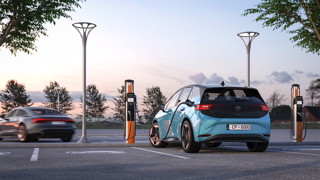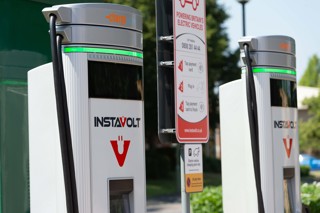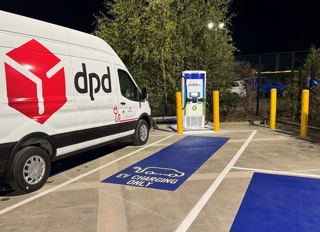There are expected to be 2.5 million annual sales of battery electric vehicles (BEVs) and plug-in hybrid Electric vehicles (PHEVs) by the end of the decade, accounting for 93% of the UK’s total vehicle sales, new research suggests.
The study, from EY and Eurelectric, also says that there are expected to be 33.4 million EVs in the UK by 2040, which will equate to 72% of the nation’s vehicles.
This, says EY and Eurelectric, highlights the need for the development of charging infrastructure and supply chains to be both accelerated and optimised in the coming years.
Maria Bengtsson (pictured), electric vehicle lead at EY UK, said: “This study highlights the ongoing challenges to the EV transition around the world, including here in the UK.
“What’s clear is that collaboration across sectors is absolutely key.
“The infrastructure challenges facing the UK’s EV transition are significant, but they are contributed to by a range of factors.”
For example, in order for the roll out of EV chargers to be scaled up, Bengtsson argues that the application process for grid connections has to be smoother and faster, access to key potential sites for chargers has to be easier and, once installed, chargers have to be more reliable.
“A successful roll out of charging infrastructure is needed to encourage more consumers and corporates to make the transition to electric and keep the UK on track to end the sale of petrol and diesel vehicles in 2030,” she added.
“It has been fantastic to have leaders from such a broad range of sectors involved in this study. It really highlights the far-reaching impacts of the EV transition and the importance of all sectors to embrace change.”
According to the EY Eurelectric study, in 2022, EVs made up just over 20% of vehicle sales in Europe.
The EY/Eurelectric study calculates that, by 2040, the total number of residential, private and public chargers needed in Europe will top 140 million (88% will be destined for home charging) to service an estimated 239 million EVs.
In the UK, a total of 20 million EV chargers are expected to be required by 2040, 88% of which would be required in private homes.
To keep pace with the growing presence of EVs on the UK’s roads and avoid a scenario where EVs are rolled out quicker than the necessary infrastructure is implemented, the study highlights six things that need to happen.
These include: resilient supply chains and vital raw materials; clean and green power production; accessible charging infrastructure; the integration of EVs with smart grid technology; digital platforms and mobile applications to optimize EV charging; and finding and training the next-generation workforce.
In the UK, in particular, this means a growing need for more original equipment manufacturers (OEMs) to be established, along with greater and more versatile supply chains, and the accelerated scaling up of charging infrastructure.
To quickly and equitably roll out charging infrastructure, the study recommends incentivising, via regulation, installation in the spaces and places where people live and work.
Cooperation between network operators and public authorities in preparing for network development, understanding the EV uptake, and assessing infrastructure needs and investments, is also key, the report says.
Serge Colle, EY global energy and resources industry Market Leader, said: “Despite economic headwinds and rising energy costs, EV sales are resilient and are continuing to accelerate.
“Globally we have reached 13% adoption, but if EVs are to enter the mainstream, significant collaboration across the entire value chain is critical.
“The EY/Eurelectric study identifies six essentials that will make or break the future of eMobility. Failure to get these right could result in missed net-zero targets, unresolved air quality issues, wasted investments, and an extended eMobility transition period.”






















Login to comment
Comments
No comments have been made yet.